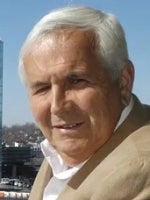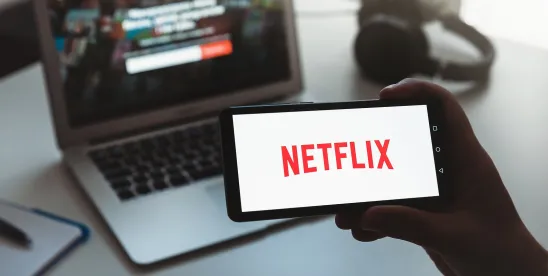Recent developments in the Eastern District of New York's prosecution of wellness company OneTaste in U.S. v. Cherwitz have raised novel questions about the intersection of streaming content and criminal evidence.1 Defense motions filed in December of 2024 and January 2025 challenge the government's use of journal entries originally created for a Netflix documentary as key evidence in its forced labor conspiracy case. This occurs during a sea change in DOJ priorities entering a new presidential administration.
After a five-year investigation, EDNY prosecutors in April of 2023 filed a single-count charge of forced labor conspiracy against OneTaste founder Nicole Daedone and former sales leader Rachel Cherwitz. The government alleges the conspiracy unfolded over a fourteen-year span, but in a prosecutorial first did not charge a substantive crime. Over the course of the prosecution, the defendants filed repeated motions with the court asking it to order the government to specify the nature of the offense. Most recently, Celia Cohen, newly appointed defense counsel for Rachel Cherwitz, highlighted in a January 18 motion the case's unusual nature: "The government has charged one count of a forced labor conspiracy...without providing any critical details about the force that occurred and how it specifically induced any labor."
In recent defense filings, the prosecution has faced mounting scrutiny over the authenticity of journal entries attributed to key government witness Ayries Blanck. Prosecutors had previously moved in October of 2024 for the court to admit the journal entries as evidence at trial for their case in chief. In a December 30 motion, Jennifer Bonjean, defense counsel for Nicole Daedone revealed that civil discovery exposes that the journal entries presented by the government as contemporaneous accounts from 2015 were actually created and extensively edited for Netflix's 2022 documentary "Orgasm Inc” on OneTaste.
"Through metadata and edit histories, we can watch entertainment become evidence," Bonjean argued in her motion. Technical analysis from a court-ordered expert showed the entries underwent hundreds of revisions by multiple authors, including Netflix production staff, before being finalized in March 2023 - just days before a sealed indictment was filed against defendants Cherwitz and Daedone. The defense has argued that this Netflix content was presented to the grand jury to secure an indictment.
The government's handling of these journal entries took a dramatic turn during a January 23 meet-and-confer session. After defense counsel challenged the authenticity of handwritten journals matching the Netflix content, prosecutors abruptly withdrew them from their case-in-chief. While maintaining the journals' legitimacy, this retreat from evidence previously characterized as central to their case prompted new defense challenges.
"This prosecution is a house of cards," argued defense counsel Celia Cohen and Michael Roboti of Ballard Spahr in a January 24 motion to dismiss. Cohen and Roboti, who joined Rachel Cherwitz's defense team earlier this month, highlighted how the government's withdrawal of the handwritten journals "exemplifies the serious problems with this prosecution." Their motion notes that defense witnesses in a parallel civil case have exposed government witnesses as "perjurers" who "have received significant benefits from the government and from telling their 'stories' in the media."
The matter came to head during a January 24 hearing before Judge Diane Gujarati, who had previously denied prosecutors' request to grant anonymity to ten potential witnesses. When Cohen attempted to address unresolved issues regarding the journals, she was sharply rebuked by the court, which had indicated it would not address the new filing during the scheduled hearing. Gujarati stated that she did not intend to schedule any further conferences before trial. The trial date is scheduled for May 5, 2025.
The case's challenges coincide with significant changes at DOJ and EDNY under the new Trump administration. EDNY Long Island Division Criminal Chief John J. Durham was sworn in as Interim U.S. Attorney for EDNY on January 21, following former U.S. Attorney Breon Peace's January 10 resignation. Peace spearheaded the OneTaste prosecution. Durham will serve until the Senate confirms President Trump's nominee, Nassau County District Court Judge Joseph Nocella Jr.
The timing is particularly significant given President Trump's January 20 executive order "Ending The Weaponization of The Federal Government." The order specifically cites the EDNY prosecution of Douglass Mackey as an example of "third-world weaponization of prosecutorial power." This reference carries special weight as EDNY deployed similar strategies in both the Mackey and Cherwitz cases - single conspiracy charges without substantive crimes, supported by media narratives rather than traditional evidence.
As Durham takes the helm at EDNY, this case presents an early test of how the office will handle prosecutions that blend entertainment with evidence, and whether novel theories of conspiracy without specified crimes will survive increased scrutiny under new leadership. The transformation of Netflix content into federal evidence may face particular challenges as the Attorney General reviews law enforcement activities of the prior four years under the new executive order's mandate.
The government's position faces further scrutiny as mainstream media begins to question its narrative. A January 24 Wall Street Journal profile by veteran legal reporter Corinne Ramey presents Daedone as a complex figure whose supporters call her a "visionary," while examining the unusual nature of prosecuting wellness education as forced labor. The piece's headline - "She Made Orgasmic Meditation Her Life. Not Even Prison Will Stop Her" - captures both the prosecution's gravity and Daedone's unwavering commitment to her work despite federal charges.
1 U.S. v. Cherwitz, et al., No. 23-cr-146 (DG).




 />i
/>i

